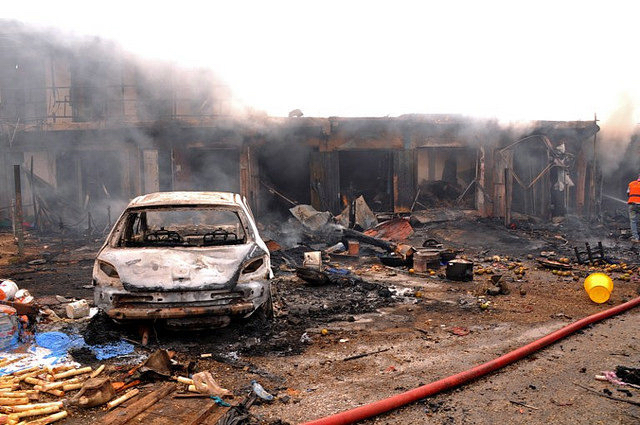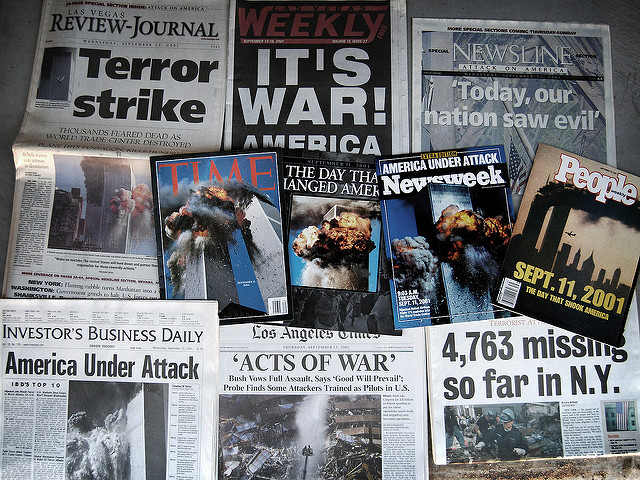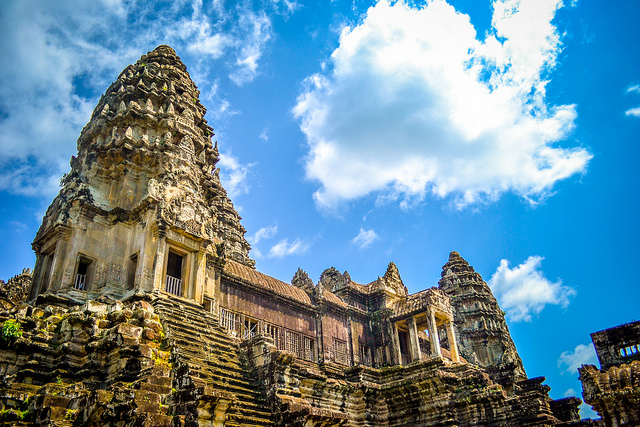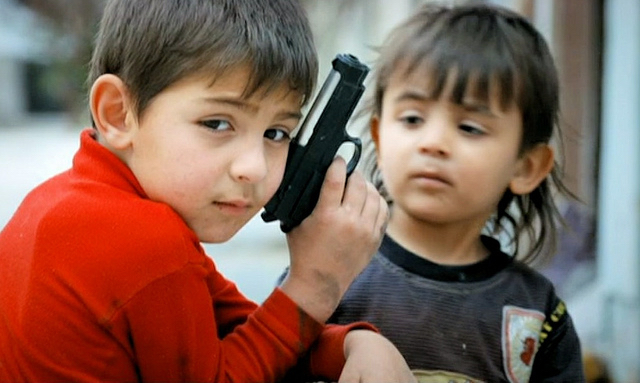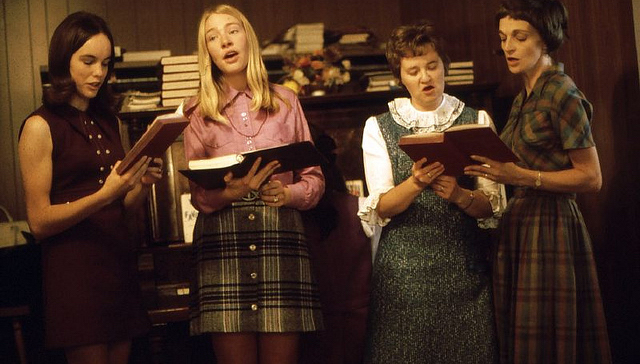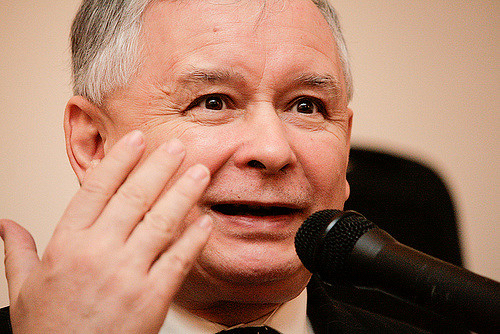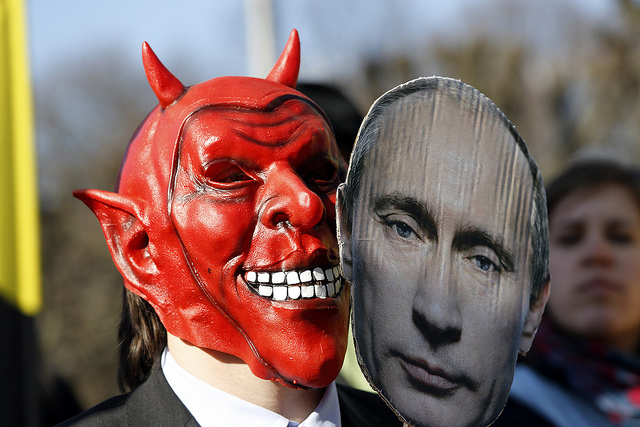Many people may know the name Boko Haram, but few understand where the group came from. The group originates in Borno state, Nigeria, where its insurgency began in 2009. The Muslim North is home to the poorest of Nigerians, where illiteracy is at its highest, while most of the wealth is concentrated in the Christian South. (More…)
Politics
War has become the absence of politics by other means. As democratic institutions lose their legitimacy, widespread uncertainty is being mirrored by the performance of civilisational showdown. Baudrillard’s arguments in The Gulf War Did Not Take Place have resonance because of how the War on Terror has radically expanded the spectacle of combat. (More…)
It is (currently) illegal in Germany to call Jürgen Elsässer an anti-Semite, and by all accounts, he has very good lawyers. This article merely suggests that articles published in his magazine utilize components of anti-Semitic rhetoric. About what he is or isn’t, the reader is invited to make up her own mind. (More…)
Politics in the world of industrialized neoliberal states is subject to a sort of compression. Neoliberalism, as a mode of thought and organization, is characterized by the shifting of ever greater regions of the social order out of the realm of political deliberation and into the ostensibly more “objective” realm of economic competition. (More…)
Sometimes hardship leads to serendipity. Since I came down with a bad respiratory infection a few weeks ago, my voice has been reduced to a scraping sound. This has forced me to modify my teaching, finding as many ways as I can to avoid talking. It’s why, instead of explaining the rise of the Khmer Rouge to my freshman seminar, I showed them a video instead. (More…)
Jean Baudillard thought that Operation Desert Storm should not be considered a war. Rather, despite containing the material features of one, it was at once real, and a simulation. Baudillard’s logic is that the term “war” was used to legitimise a performance, and it is critical to apply his logic to the War on Terror. (More…)
It seems fair to say that most observers of politics in the United States have been surprised by the ascent of Bernie Sanders’ campaign for the presidency. I put myself in a special category, though, with respect to that feeling of surprise. As a political scientist, I purport to have at least better than average observational skills and analytic tools focused on the world of politics. (More…)
You often hear the BBC described as having a ‘left-wing’ bias. This is despite all the evidence to the contrary. The logic behind such accusations seems to be that the state and its institutions are inherently ‘left-wing’. Although the BBC is somewhat removed from the market pressures heaped upon private companies, it is still subject to the same sorts of political pressures facing state bodies. (More…)
Politics in the United States is no more corrupt or crazy than anywhere else. Certainly there has been no shortage of scandals (from Teapot Dome to Watergate) and systemic corruption (Tammany Hall, Chicago up to and including the present day), but one needn’t be an avid student of history to find similar sorts of things in any the major industrialized states one cares to study. (More…)
Even amid the incessant coverage of the Republican and Democratic campaigns for President, the crisis surrounding the water supply in Flint, Michigan has stayed in the news. While the sheer it-should-not-happen-HERE horror is the primary reason, the story’s staying power also attests to the fact that so many people can use it as evidence of what is wrong with the American political landscape. (More…)
Some 22 million Europeans watched the debate on 19 January, when Polish Premier Beata Szydło defended her government against EU allegations of breaching the rule of law. (More…)
Last week, BBC Panorama exposed President Putin, and allegations of corruption against him. At first the programme focuses on Putin’s lifestyle – his expensive watches and tracksuits – and quickly moves on to hearing journalists, former allies and politicians dredge up old accusations: $40 billion in assets and the Cape Idokopas palace. It notes that the CIA and the FBI agree that Putin may be worth $40 billion in assets. (More…)
